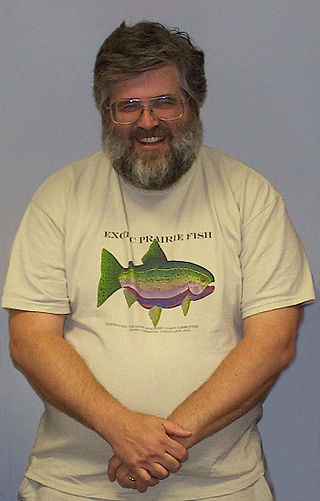
Carnegie Mellon University (CMU) is a private research university in Pittsburgh, Pennsylvania. The institution was established in 1900 by Andrew Carnegie as the Carnegie Technical Schools. In 1912, it became the Carnegie Institute of Technology and began granting four-year degrees. In 1967, it became Carnegie Mellon University through its merger with the Mellon Institute of Industrial Research, founded in 1913 by Andrew Mellon and Richard B. Mellon and formerly a part of the University of Pittsburgh.

The Heinz College of Information Systems and Public Policy, also known as Heinz College, is the public policy and information college of Carnegie Mellon University in Pittsburgh, Pennsylvania. It consists of the School of Information Systems and Management and the School of Public Policy and Management. The college is named after CMU's former instructor and the later U.S. Senator John Heinz from Pennsylvania.

The School of Computer Science (SCS) at Carnegie Mellon University in Pittsburgh, Pennsylvania, US is a school for computer science established in 1988. It has been consistently ranked among the best computer science programs over the decades. As of 2024 U.S. News & World Report ranks the graduate program as tied for No. 1 with Massachusetts Institute of Technology, Stanford University and University of California, Berkeley.

Dabbala Rajagopal "Raj" Reddy is an Indian-American computer scientist and a winner of the Turing Award. He is one of the early pioneers of artificial intelligence and has served on the faculty of Stanford and Carnegie Mellon for over 50 years. He was the founding director of the Robotics Institute at Carnegie Mellon University. He was instrumental in helping to create Rajiv Gandhi University of Knowledge Technologies in India, to cater to the educational needs of the low-income, gifted, rural youth. He was the founding chairman of International Institute of Information Technology, Hyderabad. He is the first person of Asian origin to receive the Turing Award, in 1994, known as the Nobel Prize of Computer Science, for his work in the field of artificial intelligence.

The Mellon College of Science (MCS) is part of Carnegie Mellon University in Pittsburgh, Pennsylvania, US. The college is named for the Mellon family, founders of the Mellon Institute of Industrial Research, a predecessor of Carnegie Mellon University.

The College of Fine Arts (CFA) at Carnegie Mellon University in Pittsburgh, in the U.S. state of Pennsylvania oversees the Schools of Architecture, Art, Design, Drama, and Music along with its associated centers, studios, and galleries.
The Marianna Brown Dietrich College of Humanities and Social Sciences is the liberal and professional studies college and the second-largest academic unit by enrollment at Carnegie Mellon University in Pittsburgh, Pennsylvania, USA. The college emphasizes study through rigorous analysis and technology of the behaviors, institutions, and beliefs that constitute the human experience, describing itself as “not an ordinary liberal arts school.” The college was named for Marianna Brown Dietrich, the mother of philanthropist William S. Dietrich II, after his donation of $265 million to the university in 2011 – the largest single donation in Carnegie Mellon history.

Carnegie Mellon Silicon Valley is a degree-granting branch campus of Carnegie Mellon University located in Mountain View, California. It was established in 2002 at the NASA Ames Research Center in Moffett Field.

Lenore Carol Blum is an American computer scientist and mathematician who has made contributions to the theories of real number computation, cryptography, and pseudorandom number generation. She was a distinguished career professor of computer science at Carnegie Mellon University until 2019 and is currently a professor in residence at the University of California, Berkeley. She is also known for her efforts to increase diversity in mathematics and computer science.

The Carnegie Mellon School of Art at Carnegie Mellon University in Pittsburgh, Pennsylvania is a degree-granting institution and a division of the Carnegie Mellon College of Fine Arts. The School of Art was preceded by the School of Applied Design, founded in 1906. In 1967, the School of Art separated from the School of Design and became devoted to visual fine arts.

The Human–Computer Interaction Institute (HCII) is a department within the School of Computer Science at Carnegie Mellon University (CMU) in Pittsburgh, Pennsylvania. It is considered one of the leading centers of human–computer interaction research, and was named one of the top ten most innovative schools in information technology by Computer World in 2008. For the past three decades, the institute has been the predominant publishing force at leading HCI venues, most notably ACM CHI, where it regularly contributes more than 10% of the papers. Research at the institute aims to understand and create technology that harmonizes with and improves human capabilities by integrating aspects of computer science, design, social science, and learning science.

Randolph Frederick Pausch was an American educator, a professor of computer science, human–computer interaction, and design at Carnegie Mellon University (CMU) in Pittsburgh, Pennsylvania.

"Really Achieving Your Childhood Dreams" was a lecture given by Carnegie Mellon University computer science professor Randy Pausch on September 18, 2007, that received widespread media coverage, and was the basis for The Last Lecture, a New York Times best-selling book co-authored with Wall Street Journal reporter Jeffrey Zaslow. Pausch had been diagnosed with pancreatic cancer in September 2006. On September 19, 2006, Pausch underwent a pancreaticoduodenectomy to remove the malignant tumor from his pancreas. In August 2007, doctors discovered that the cancer had recurred. Pausch was given a terminal diagnosis and told to expect that three to six months of good health remained.

Christopher Granger Atkeson is an American roboticist and a professor at the Robotics Institute and Human-Computer Interaction Institute at Carnegie Mellon University (CMU). Atkeson is known for his work in humanoid robots, soft robotics, and machine learning, most notably on locally weighted learning.
The Tepper School of Business is the business school of Carnegie Mellon University. It is located in the university's 140-acre (0.57 km2) campus in Pittsburgh, Pennsylvania.

Jesse N. Schell is an American video game designer and author, as well as the CEO of Schell Games, and a distinguished professor of the practice of entertainment technology at CMU's Entertainment Technology Center (ETC), a joint master's program between the College of Fine Arts and School of Computer Science in Pittsburgh, Pennsylvania.

William J. (Chip) Walter Jr. is an author, journalist, National Geographic Fellow, educator, filmmaker and former CNN bureau chief. He has written five mainstream science books between 1991 and 2019. Walter was one of the original employees at CNN when it went on the air June 1, 1980 and later became its youngest bureau chief when he created CNN's first Southeast Bureau in 1981 before heading up the network's San Francisco Bureau in 1982. He has written and produced several PBS science documentaries, served as an adjunct professor at Carnegie Mellon University in three different departments, worked with UNICEF on the issue of childhood trauma, spoken at Harvard, Xerox PARC, Carnegie Mellon University and the Chautauqua Institution. One of his three original screenplays was produced and released under the title Sunset Grill in 1993 starring Peter Weller, Lori Singer and Stacy Keach. In 2015 his feature story for National Geographic Magazine explored the origins of human art and symbolic thinking.
Priya Narasimhan is a Professor of Electrical & Computer Engineering at Carnegie Mellon University in Pittsburgh, Pennsylvania. She is also the CEO and founder of YinzCam, a U.S.-based technology company that provides the mobile fan experience for a number of professional sports teams and leagues in the United States, Canada, Australia and New Zealand.
Jessica K. Hodgins is an American roboticist and researcher who is a professor at Carnegie Mellon's Robotics Institute and School of Computer Science. Hodgins is currently also Research Director at the Facebook AI Research lab in Pittsburgh next to Carnegie Mellon. She was elected the president of ACM SIGGRAPH in 2017. Until 2016, she was Vice President of Research at Disney Research and was the Director of the Disney Research labs in Pittsburgh and Los Angeles.
Jessica Hammer is an assistant professor in the Human-Computer Interaction Institute at Carnegie Mellon University.
















